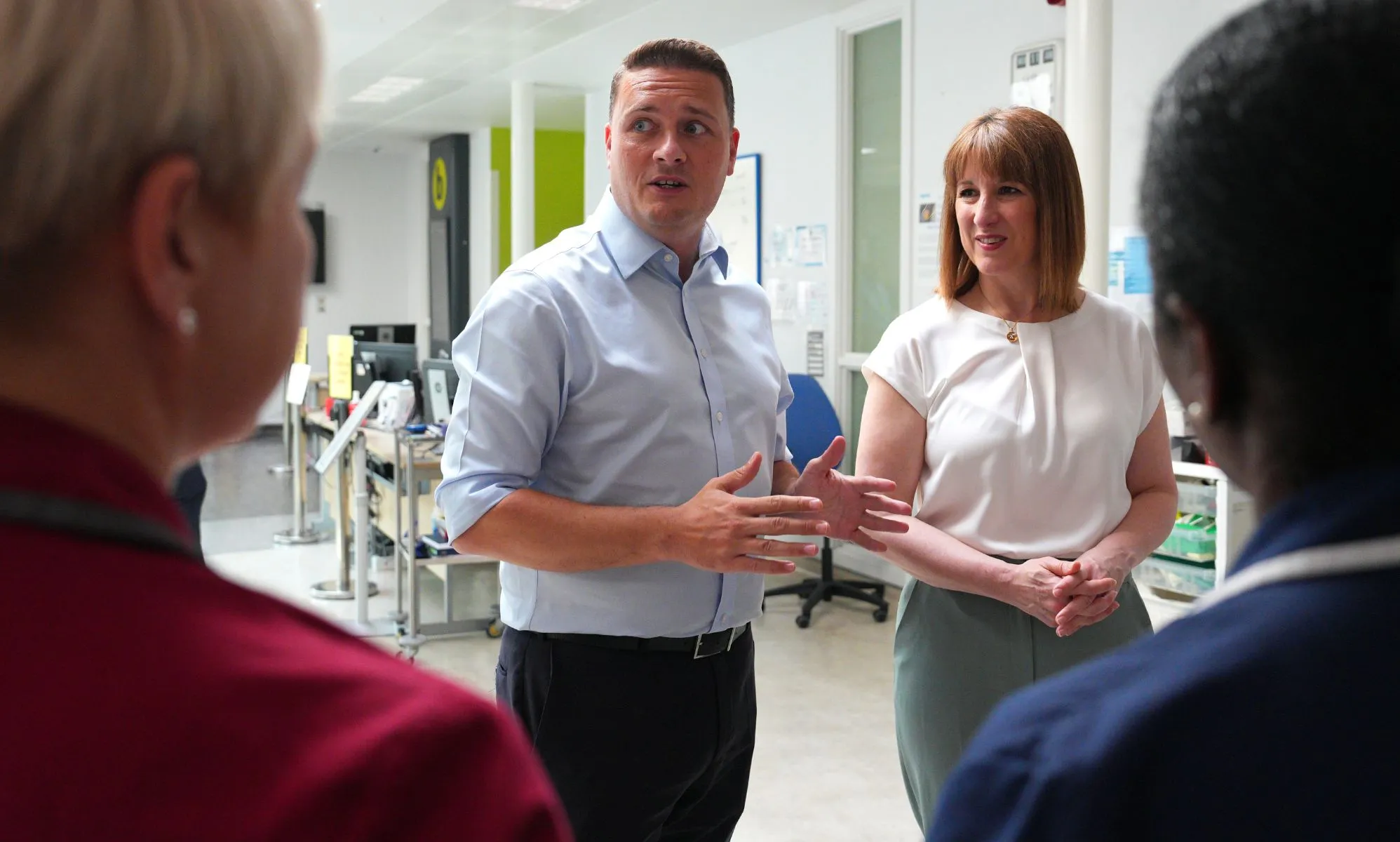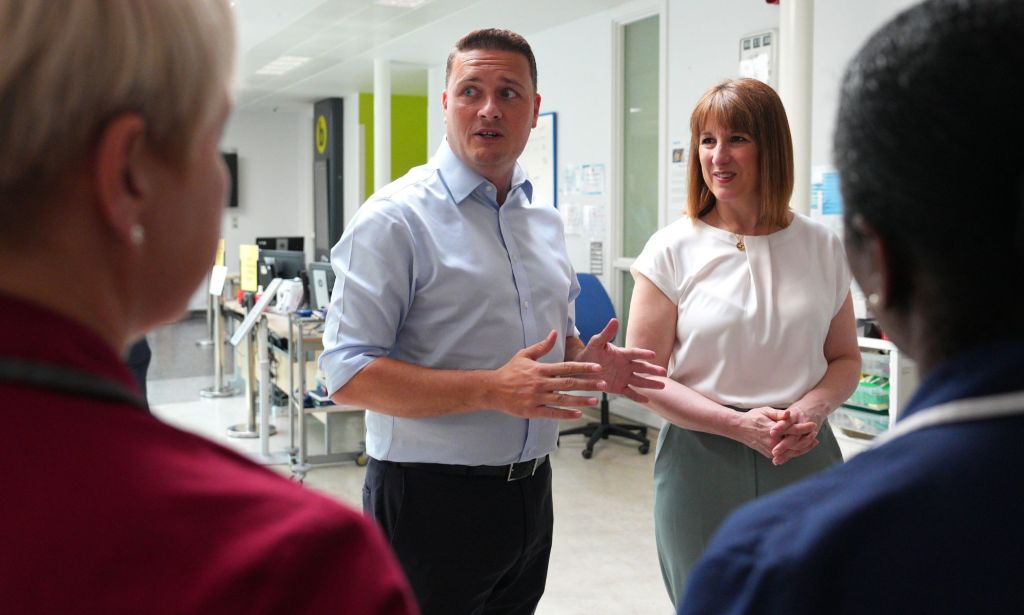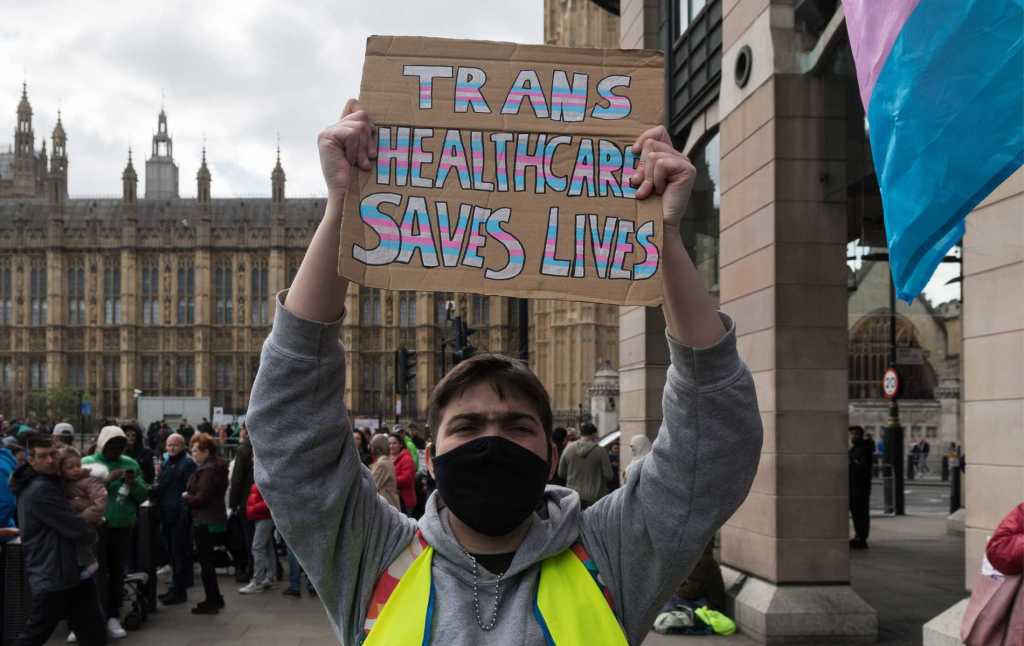 June 20 2025, 08:15
June 20 2025, 08:15 Warning: This article makes references to suicide and self-harm. Ready discretion is advised.
The ban on puberty blockers in the UK is having “serious adverse effects” on young trans people, a new study has revealed.
Researchers from the University of London, headed by trans academic Natacha Kennedy, showed that the government’s decision to ban the physically reversible gender-affirming treatment was “significantly, extensively and relentlessly harming trans children and young people”.
Health secretary Wes Streeting announced an indefinite ban on new NHS prescriptions for puberty blocker in December, deeming them an “unacceptable safety risk”.
A temporary ban had been put in place by the Conservative government in May last year, in the wake of the publication of the Cass Report. It was extended in August, following Labour’s landslide victory in the general election.
People with prescriptions could continue treatment, but those on the waiting list were only able to access them as part of an NHS clinical trial.

The new research, published in the Journal of Gender Studies, analysed figures collected last autumn and interview data from this January and February.
A theme, researchers said, was the “overwhelming levels of distress” experienced by transgender youngsters who were being denied treatment, which stood in “stark contrast” to how their parents or guardians described them before the ban came into effect.
There was also a notable difference between the mental health of trans teenagers denied puberty blockers and those already on treatment.
“The latter group were reported to be happy, well-adjusted and little different from most cis children,” the study concluded. “Those affected by the ban, previously happy, well-adjusted children, are now described as having become depressed, distressed, fearful, suicidal, despairing, traumatised, anxious and stressed.”
‘The shock was awful, my daughter could not cope’
One parent told researchers that her child, who has been denied healthcare, felt “life wasn’t worth living” and had resorted to self-harm.
“She had looked forward to this for months, then with no warning it was taken away,” the parent said. “The shock was awful for her and she could not cope. My child feels despair, notions of suicide as puberty… and body changes seem so out of control and irreversible.”
Meanwhile, those who had undergone puberty blocker treatment showed “obvious improvements in quality of life and mental health”, the study showed. “This raises the question as to whether it is the ban itself that is the main intended outcome by those behind it, rather than ‘protecting’ children as has been claimed,” it went on to say.

In April, Streeting said he was “genuinely sorry” for the “fear and anxiety” the ban had caused, but he had done “what any health secretary should do when confronted with that sort of choice”.
There is no explicit evidence that puberty blockers are harmful to trans youngsters. The medication is typically prescribed to teenagers who are on the pathway to adult care. Other research has shown that not only are puberty blockers “safe, effective, and reversible”, but almost no young person regretted taking them.
Despite this, in May, the government said it was considering extending the ban to private prescriptions.
Describing medicine as a “balance of risk,” the researchers at the University of London said the ban “ignored one side of this balance of risk,” which was the “absolute certainty of severe psychological, physical and social harm scarring the lives of trans children and young people”.
They went on to say: “Those advocating banning puberty blockers have justified it on the grounds that it is to protect children. The evidence here shows that is quite clearly not doing that.
“On the contrary, the ban is causing very significant harm to trans children and young people and, consequently, there can be no justification for it.”
Suicide is preventable. Readers who are affected by the issues raised in this story are encouraged to contact the Samaritans on 116 123 (samaritans.org), or Mind on 0300 123 3393 (mind.org.uk). Readers in the US are encouraged to contact the National Suicide Prevention Line on 1-800-273-8255.
Share your thoughts! Let us know in the comments below, and remember to keep the conversation respectful.
The post Puberty blockers ban causing ‘extensive’ harm to trans youth, study shows appeared first on PinkNews | Latest lesbian, gay, bi and trans news | LGBTQ+ news.